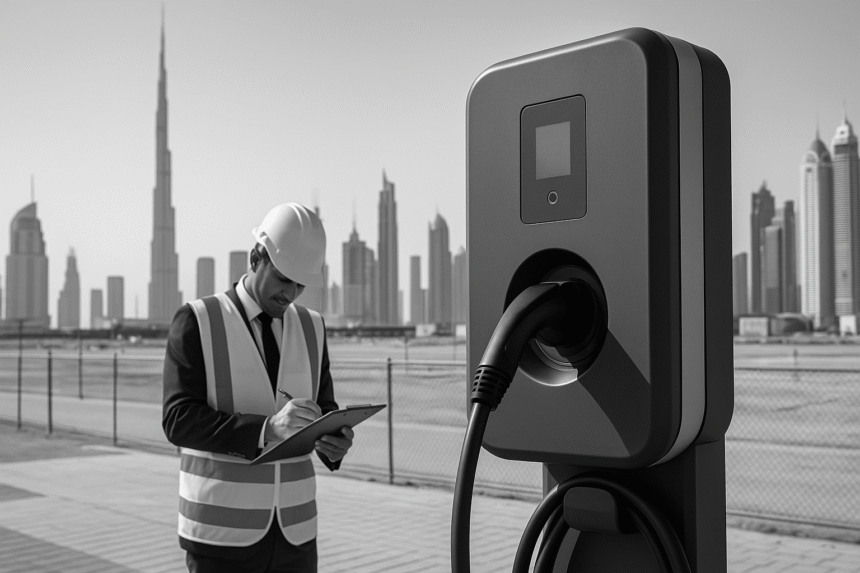EV Charger Installation in Dubai: A Step-by-Step Guide
As Dubai accelerates its transition to sustainable transportation, the demand for electric vehicle (EV) infrastructure is on the rise. For businesses and property developers, understanding the process of EV charger installation in Dubai is crucial to align with regulatory requirements and capitalize on emerging opportunities.
1. Licensing Requirements for EV Charger Installation in Dubai
Before initiating any EV charger installation, obtaining the necessary approvals is mandatory. The Dubai Electricity and Water Authority (DEWA) is the primary authority overseeing EV charging infrastructure. All public and private entities must secure DEWA’s approval prior to establishing, installing, operating, or maintaining EV charging stations .
Key Steps:
-
Commercial License: Acquire a commercial license from the Department of Economic Development (DED) for operating EV charging services.
-
Technical Compliance: Ensure that the proposed installation meets DEWA’s technical standards and safety regulations.
2. DEWA Approvals and Procedures
DEWA’s approval process involves several stages to ensure safety and compliance:
-
Application Submission: Submit detailed technical drawings and specifications of the proposed installation to DEWA for review.
-
Inspection and Testing: Upon approval, DEWA conducts site inspections to verify compliance with technical standards.
-
Connection and Commissioning: After successful inspection, DEWA facilitates the connection of the charging station to the power grid and commissions the system for operation
3. Site Selection and Zoning Considerations
Selecting an appropriate site is critical for the success of EV charger installations. Factors to consider include:
-
Accessibility: Choose locations with high visibility and easy access for EV users, such as shopping malls, office complexes, and residential areas.
-
Electrical Infrastructure: Assess the site’s existing electrical capacity to support the additional load of EV chargers.
-
Zoning Regulations: Ensure compliance with local zoning laws and obtain necessary permits from the Dubai Municipality .
4. Typical Project Timelines
The timeline for EV charger installation projects can vary based on complexity and regulatory processes:
-
Planning and Approvals: Approximately 4–6 weeks, including site assessments and obtaining necessary licenses.
-
Installation and Commissioning: Typically 2–4 weeks, depending on the scale of the project and coordination with DEWA for inspections and grid connection.
Engaging with experienced contractors and consultants can help streamline the process and ensure timely completion.
Conclusion
Navigating the EV charger installation process in Dubai requires a thorough understanding of regulatory requirements, site selection criteria, and project management timelines. By adhering to DEWA’s guidelines and collaborating with qualified professionals, businesses can contribute to Dubai’s sustainable transportation goals while tapping into a growing market



Leave a Reply